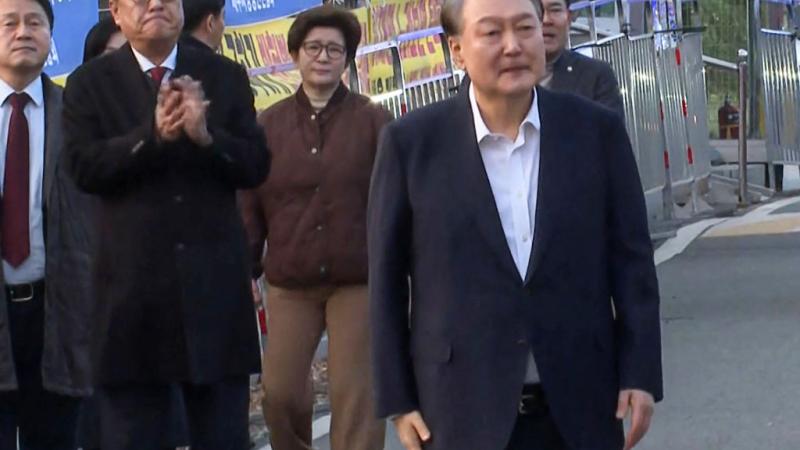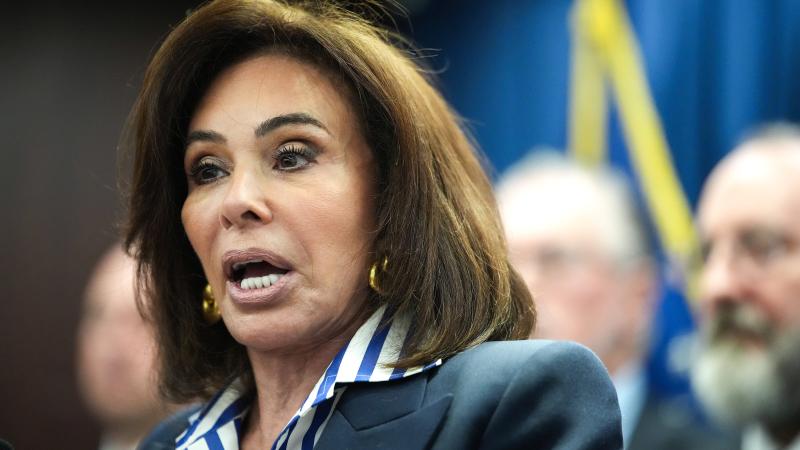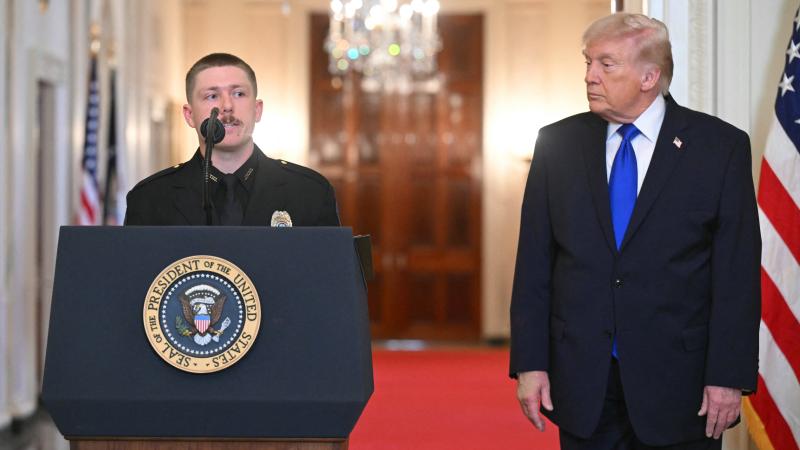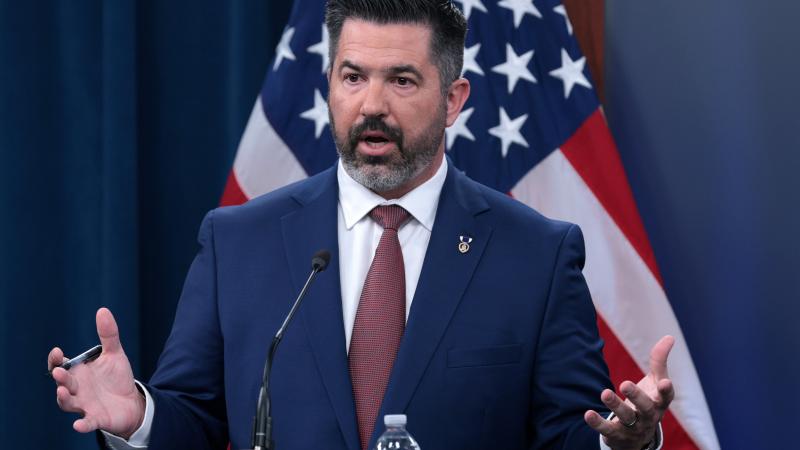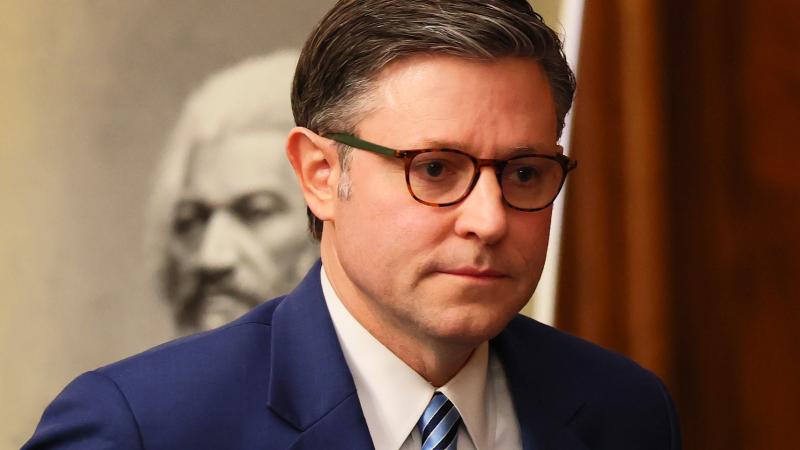Biden administration balks at supporting Chinese protesters, condemning communist government
Rare anti-regime protests have erupted in China, but the administration won't go beyond saying the Chinese people have a right to protest peacefully.
As the Chinese people poured into the streets in a rare show of dissent, protesting their government's draconian "zero COVID" lockdown policies, the Biden administration was reluctant to back the demonstrators or condemn China's ruling Communist Party.
"We've said that zero COVID is not a policy we are pursuing here in the United States," a State Department spokesperson told Just the News on Monday when asked to comment on the protests. "And as we've said, we think it's going to be very difficult for the People's Republic of China [PRC] to be able to contain this virus through their zero COVID strategy.
"For us, we are focused on what works and that means using the public health tools like: continuing to enhance vaccination rates and making testing and treatment easily accessible. We've long said everyone has the right to peacefully protest, here in the United States and around the world. This includes in the PRC."
The White House issued an identical statement earlier in the day, leading to harsh criticism from critics of President Biden, including lawmakers on Capitol Hill.
"Pitiful. At a potentially historic inflection point, Dems shill for the CCP," tweeted Sen. Ted Cruz (R-Texas), using an acronym for the Chinese Communist Party. "Pure weakness from the Biden administration. It's almost as if Biden wishes he was driving a tank in Tiananmen Square."
Cruz appeared to be referring to student-led, anti-government protests that occurred in Beijing's Tiananmen Square in 1989. The government sent in the military to crush the demonstrations with lethal force.
When asked Monday why the White House's statement didn't include explicit calls for China to stop detaining or harming protesters and journalists, spokesman John Kirby responded: "We're watching this closely ... We continue to stand up and support the right of peaceful protests."
Chinese authorities moved to quash the protests as they erupted over the weekend and continued into Monday, detaining and dispersing demonstrators and establishing a high security presence in Shanghai, Beijing, and other sites of unrest. Police have also stopped people to search their phones for foreign apps such as Twitter and Telegram and to delete pictures, according to press reports and videos circulating on social media.
A BBC journalist covering the protests was beaten and detained by Chinese authorities, the British national broadcaster said, adding it was "extremely concerned" about the treatment of Ed Lawrence.
"Chinese security services will be keen to clamp down on future protests," Craig Singleton, senior China fellow at the Foundation for Defense of Democracies, told Just the News. "We have seen fences erected around the sites of some of [the demonstrations], and I suspect authorities will prevent mass gatherings on Chinese college campuses for the near future."
Kirby was asked at Monday's White House press briefing for the president's reaction when he hears people in the streets of China call for freedom and for Chinese leader Xi Jinping to step down.
"The president's not going to speak for protesters around the world," said Kirby. "They're speaking for themselves."
At another point, Kirby was asked what Biden's message is for the Chinese people and whether the White House supports their efforts to regain personal freedoms amid the country's stringent COVID controls, which include mass mandatory testing and extreme lockdown measures.
"The White House supports the right of peaceful protests," responded Kirby.
Fox News reporter Peter Doocy pushed Kirby to explain why the White House's "line" is that people have the right to protest peacefully and not that the U.S. "thinks it's bad to lock people up in their houses to stop COVID."
Kirby responded, "We've made it clear that a lockdown is not a policy that we're going to support here," before echoing that the Chinese people should be able to protest peacefully.
According to some experts, however, Biden needs to draw a line in the sand before the situation in China gets worse.
"The Biden administration should tell China if they use force against the Chinese people, there will be severe consequences," Gordan Chang, author of "The Coming Collapse of China" and "The Great U.S.-China Tech War," told Just the News, citing potential actions such as removing diplomats, closing U.S. consulates in China, or even cutting off some degree of economic relations. "Statements are good, but the administration needs to have teeth to them."
Protests exploded in China following a deadly fire on Friday in Urumqi, capital of the far western region of Xinjiang, which officials said killed 10 people. According to reports, lockdown measures had delayed rescue workers from reaching the victims, leading to public outcry that quickly spread nationwide.
"The mass protests over the weekend follow several weeks of sporadic, isolated demonstrations throughout the country," said Singleton. "The Chinese people are at their breaking point after three years of draconian lockdowns that have resulted in massive economic and social costs for the entire population, rich and poor alike."
The current protests are rare, according to experts, as they are nationwide and mobilizing around common messages, morphing beyond specific and localized disputes.
"Isolated protests are not uncommon in China, but what we witnessed over the weekend was extraordinary for two reasons," said Singleton. "First, the scale of such civil disobedience in mainland China is unprecedented during the Xi Jinping era. There are reports of dozens of simultaneous protests across the country, including at over 50 Chinese universities — historically hotbeds of civil unrest in China. And second, many of the protesters were vocalizing frustration not just with zero-COVID's excesses, but Xi Jinping himself."
Some protests have been focused on zero COVID specifically, but in other cases demonstrators have called for Xi to resign and shouted slogans such as "we want freedom." Many Chinese in the streets have been holding up sheets of blank paper as a subtle way to protest the government's censorship of free expression.
"It was COVID-19 restrictions that triggered the protests, but the sentiment goes well beyond that," said Chang. "People are calling for Xi to step down, for the party to go down. The Chinese people have hit a tipping point, especially after children burned to death in an apartment building where they could have been saved."
It remains unclear how long the protests will continue and whether they'll intensify or fizzle out. What's clear is China has a sophisticated surveillance system and is what some observers have dubbed the "perfect police state," giving the government great ability to monitor and quash dissent. And according to experts, the zero COVID policy, while a public health measure, is largely about controlling the population.
China has reaffirmed its COVID policy but eased certain restrictions in what could be a way of mollifying the unrest without giving in.
The massive economic fallout associated with the lockdowns and China's mass COVID testing regime are hurting the country, but to Xi those costs may be worth it.
"Xi has so closely staked his legacy on the notion that China's pandemic response has been superior to that of the West," said Singleton. "That narrative would be seriously undermined if China lifted these controls too quickly and hospitals quickly became overrun."
Regardless of COVID, however, unrest may well continue.
"The Communist Party can crush these protests, but it can't eliminate the sentiment behind them," said Chang. "They can take actions to get through this week, but it will be something else next week. The Communist Party has all the guns, the resources, but they're playing a very weak hand. They're in a fragile position. They can coerce, jail, and intimidate, but they ultimately can't win hearts."
In all likelihood, Xi won't be toppled by the current demonstrations, according to Singleton, who said the Chinese leader will use a mix of carrots and sticks to deflect blame while "not tolerating calls for liberalization or political reform."

